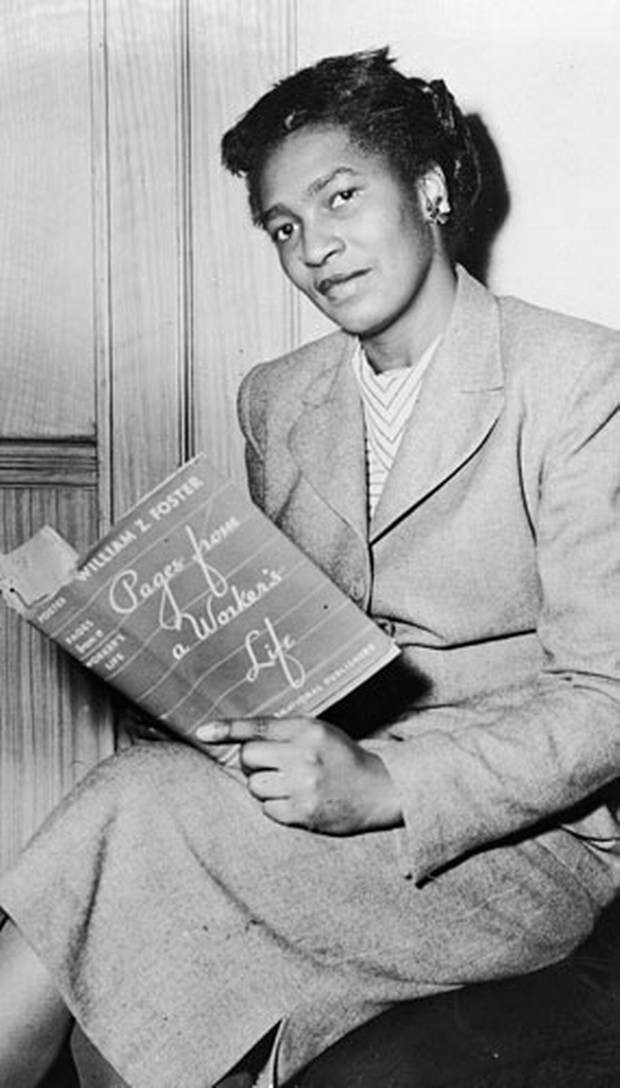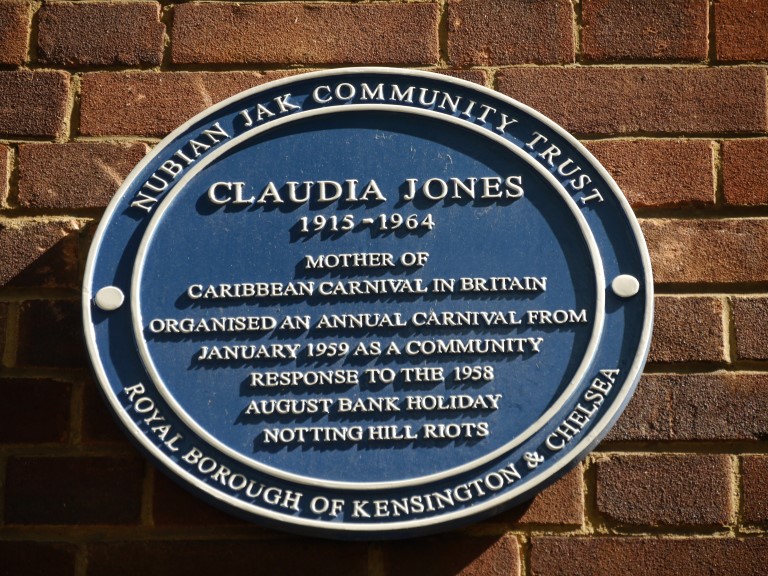[On September 17, 2019 Professor Erik McDuffie (African American Studies and History) presented a talk on Marx and Marxism as part of the Modern Criticism Theory Lecture series. Below is a response by Brenda Gisela Garcia, Ph.D. Candidate in Anthropology.] Summary of Marx and Marxism Written by Brenda Gisela Garcia (Anthropology) Professor McDuffie presented the history of Claudia Jones, a radical black intellectual who was erased from the Marxist tradition despite her central leadership in the U.S. Communist Party (CPUSA). A formative intellectual within in the CPUSA and critic of Jim Crow laws, Jones was imprisoned and persecuted for her political dissent, and deported to Great Britain where she continued her work until she died. Dr. McDuffie argues that although her work and activism occurred in the 1930s and 1940s her words today warns us about the era of Trump and the world wide shift to extreme right policies. [caption id="attachment_1967" align="align-left" width="366"] Claudia Jones [/caption] Jones was born Claudia Vera Cumberbach in Belmont, Trinidad. Her family moved to the U.S. in search for a better future. Her mother’s death, brought on by overwork and exhaustion, occurred soon after her family immigrated to the U.S. and went on to guide Jones’s political impulse. Jones entered the CPUSA in 1930 and quickly assumed prominent leadership within the Party, serving in the national committee that same year. Dr. McDuffie stressed that members of CPUS saw the Party as fuel of possibility to gain racial equality, peace, internationalism, and women's rights. For example, the CPUSA demanded the release of nine black young men condemned to the death penalty in the Scottsboro Case. The CPUSA organized and fought for the youth to be spared the death penalty. For her activism Jones faced state persecution and was unjustly arrested for violating the Smith Act. Two years later, Jones was arrested for violating the McCarran Act. Dr. McDuffie reminds us that both acts are still valid today. In 1951, Jones was arrested a subsequent time in 1951 and was deported to Britain. After her deportation she continued with her activism. She allied with London’s Caribbean community and created the West Indian Gazette. In 1959 Jones organized the first Nottingham Carnival . She died in 1964 at the age of 49 and was buried to the left of Karl Marx. [caption id="attachment_1971" align="align-right" width="405"]
Claudia Jones [/caption] Jones was born Claudia Vera Cumberbach in Belmont, Trinidad. Her family moved to the U.S. in search for a better future. Her mother’s death, brought on by overwork and exhaustion, occurred soon after her family immigrated to the U.S. and went on to guide Jones’s political impulse. Jones entered the CPUSA in 1930 and quickly assumed prominent leadership within the Party, serving in the national committee that same year. Dr. McDuffie stressed that members of CPUS saw the Party as fuel of possibility to gain racial equality, peace, internationalism, and women's rights. For example, the CPUSA demanded the release of nine black young men condemned to the death penalty in the Scottsboro Case. The CPUSA organized and fought for the youth to be spared the death penalty. For her activism Jones faced state persecution and was unjustly arrested for violating the Smith Act. Two years later, Jones was arrested for violating the McCarran Act. Dr. McDuffie reminds us that both acts are still valid today. In 1951, Jones was arrested a subsequent time in 1951 and was deported to Britain. After her deportation she continued with her activism. She allied with London’s Caribbean community and created the West Indian Gazette. In 1959 Jones organized the first Nottingham Carnival . She died in 1964 at the age of 49 and was buried to the left of Karl Marx. [caption id="attachment_1971" align="align-right" width="405"] Claudia Jones Plaque in London[/caption] Dr. McDuffie concluded by noting that Jones’s fears are coming true, especially the worldwide move of fascist far right movements and white nationalism. In the U.S., the rise of popular election slogan “Make America Great Again,” the oppression of labour unions, the distortion of facts, the controlled media, the racist demonization of people of color all present a clear example of what would preoccupy Jones. Dr. McDuffie asked the audience to consider where do we go from here? He called upon us to think critically about connections of past, present, and future. Claudia Jones and her work demonstrates what happens when women of color speak out about racial injustice. He concluded that Jones’s work enables us to imagine and chart the possibility of a new world.
Claudia Jones Plaque in London[/caption] Dr. McDuffie concluded by noting that Jones’s fears are coming true, especially the worldwide move of fascist far right movements and white nationalism. In the U.S., the rise of popular election slogan “Make America Great Again,” the oppression of labour unions, the distortion of facts, the controlled media, the racist demonization of people of color all present a clear example of what would preoccupy Jones. Dr. McDuffie asked the audience to consider where do we go from here? He called upon us to think critically about connections of past, present, and future. Claudia Jones and her work demonstrates what happens when women of color speak out about racial injustice. He concluded that Jones’s work enables us to imagine and chart the possibility of a new world.